Job Details
The activity will be carried out within the UMR 1419 NuMéA (Nutrition, Metabolism, Aquaculture), located in Saint-Pée-sur-Nivelle (64), and the Donzacq fish farm where the experiments associated with the thesis project will take place. The doctorate will be conducted within the framework of the European project EUAqua.org ( https://www.euaqua.org/ ). EUAqua.Org aims to transform European organic aquaculture through innovative and sustainable farming strategies. The objective of this project is to improve the resilience, health and environmental performance of farmed fish while meeting consumer expectations for high-quality, organic and environmentally friendly seafood. In this context, the thesis project aims to develop organic aquaculture feeds that are less dependent on fishmeal and fish oil. The doctoral student will be under the responsibility of scientists from the UMR NuMéA and will interact more broadly with various academic and industrial partners in the aquaculture feed sector.
The person will be recruited as a doctoral student for a period of 36 months and will work on the development and nutritional evaluation of new organic aquaculture feeds.
Context of the thesis project
Organic aquaculture remains heavily dependent on fishmeal and fish oil from mill fisheries, a major obstacle to its sustainable development. According to European regulations, up to 60% of organic feed ingredients can be of plant origin. However, in practice, the majority of available organic feeds are still largely formulated with raw materials of marine origin. This dependence is due in particular to the limited availability of certified organic protein-rich plant-based raw materials, as well as the regulatory ban on the use of synthetic amino acids to balance fish diets.
The nutritional needs of fish, often established under optimal experimental conditions with feeds primarily composed of casein as a protein source, deserve to be reassessed to better reflect the realities of farming and feeding. Thus, a reduction in protein intake could be a lever for action to reduce the use of fishmeal in organic conditions. New sources of ingredients are emerging, such as plant concentrates (peas, faba beans, rapeseed, soybeans, sunflowers) and are now available in organic versions. Yeast extracts, rich in proteins and bioactive compounds, and whose beneficial effects on both growth and the intestinal and immune health of fish have already been demonstrated, are already authorized in organic feed. These new certified organic raw materials also offer prospects for the development of organic aquaculture feeds.
Thus, it becomes relevant to explore new organic feed formulation strategies combining reduced protein inputs and diversification of feed resources to significantly reduce marine raw material inputs, while maintaining high zootechnical performance and ensuring fish health and robustness. This type of approach is essential to evolve organic aquaculture towards a more sustainable, competitive model that meets societal expectations regarding the environment.
Research work program
The thesis program will take place in 3 experimental stages.
Step 1: Are the performances of current conventional and organic foods different?
Experiment 1: Comparison of performance obtained with current conventional and organic feeds in juvenile trout.
In France, the use of organic feed for rainbow trout farming remains marginal, making it difficult to comparatively assess the effectiveness of conventional and organic diets. In this thesis, we propose to establish an inventory of the performance of juvenile trout in conventional or organic feed based on a comparative study with a conventional commercial feed, with a low content of fish meal (17-20%) and fish oil (10-12%) and an organic feed composed of approximately 60% fish meal and 25% fish oil, from sustainable fisheries.
Step 2: Can the proportion of fish meal and oil in organic feed be reduced by reducing the total protein intake and using organic plant sources and a protein-rich yeast extract?
Experiment 2: formulation of new organic foods with reduced levels of fish meal and oils and comparison of the performance of these new organic foods with a current organic food. Evaluation of the impact of the absence of amino acid supplementation (methionine and lysine) in these new organic foods.
The objective of this phase will be to determine the extent to which it is possible to reduce the proportions of fishmeal and fish oil in rainbow trout feed while still complying with organic regulatory standards. "Sustainable" organic feed will be formulated with decreasing levels of protein. To reduce the use of fishmeal, our strategy will be to specifically use a high-protein (>60%) certified organic yeast extract, currently being developed by Lallemand, a world leader in the production and marketing of yeasts, bacteria, and specialty ingredients.
To meet energy needs, we will prioritize the inclusion of certified organic oils, such as rapeseed and soybean oil, whenever possible. However, fish oil intake will be necessary to ensure the intake of long polyunsaturated fatty acids of the n-3 series, particularly EPA and DHA.
Essential amino acid supplementation will also be applied or not to these diets in order to objectify the performance losses potentially caused by an amino acid imbalance. Indeed, the work carried out within the unit indicates that the addition of amino acids in crystalline form could disrupt the transport and therefore the bioavailability of certain amino acids and harm protein synthesis. Particular attention will therefore be paid to the amino acid profiles of the different diets and their impact on the regulation of the expression of amino acid transporters and the activation of amino acid signaling pathways.
Step 3: Does the SUAVE line perform better than its control line with a new organic feed with reduced fish meal and oil content?
Experiment 3: Evaluation of the performance of the SUAVE line compared to the control line fed with a more sustainable organic feed
In the final part of the thesis, the "sustainable" organic feed that performed best in stage 2 will be evaluated on the SUAVE trout line and its control line. The SUAVE genetic line, initially selected by INRAE for its ability to better utilize plant feed, ultimately exhibited superior growth compared to unselected fish, regardless of feed composition. This study will determine whether the effectiveness of the new, more sustainable organic aquaculture feed can be optimized through the use of this specific genetic line.
Additional information
The formulation of the experimental feeds (carried out using Allix software) will be supervised by engineers from the unit with the help of a formulator from the Le Gouessant cooperative. The experiments will be conducted at the Donzacq experimental fish farm. The doctoral student will be responsible for collecting and analyzing zootechnical data, performing the biochemical analyses necessary to characterize the body composition of the fish, and exploring the physiological responses related to metabolism and immunity, mainly through the study of molecular markers by PCR and Western blot. The analysis of product quality, the presence of contaminants, and the preservation suitability of the fillets will be carried out in collaboration with other research units. All the necessary materials are available in the laboratory and the work is funded by the European project EUAqua.org.
Requirements
Master/Engineer (Bac+5)
Recommended training: Master 2 in biology, aquaculture, animal nutrition or agricultural engineering.
Desired knowledge (areas to know): nutrition, fish physiology, animal experimentation, biochemical and/or molecular analyses.
Skills sought: enthusiasm and curiosity, autonomy, scientific rigor, good interpersonal skills, organizational and teamwork skills, taste for experimental work, good command of statistics, ability to write scientifically in French and English.
Contact Information
INRAE Occitanie-Toulousehttps://jobs.inrae.fr/ot-26569
Post Date: 7/9/2025 2:30:26 PM
Closing Date: 8/6/2025 12:00:00 AM

